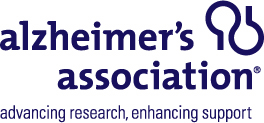 The Alzheimer’s Association will be hosting its 2013 Alzheimer’s Educational Symposium on Thursday, November 7th at The Whitley Center at the Oblate School of Theology from 7:30 a.m. – 4:00 p.m. The Symposium will feature nationally recognized speakers and topics such as: frontotemporal lobar dementia, geriatricians vs. primary care, Alzheimer’s disease and co-morbidities, dementia challenges, ETHICS: Alzheimer’s disease and end of life care, and the role of mitochondria in the oxidative stress of Alzheimer’s disease.
The Alzheimer’s Association will be hosting its 2013 Alzheimer’s Educational Symposium on Thursday, November 7th at The Whitley Center at the Oblate School of Theology from 7:30 a.m. – 4:00 p.m. The Symposium will feature nationally recognized speakers and topics such as: frontotemporal lobar dementia, geriatricians vs. primary care, Alzheimer’s disease and co-morbidities, dementia challenges, ETHICS: Alzheimer’s disease and end of life care, and the role of mitochondria in the oxidative stress of Alzheimer’s disease.
Admission for family caregivers is free. Professional caregivers may earn up to six educational credits hours for attending the conference for a minimal fee of $75.
Partnering with the Alzheimer’s Educational Symposium provides excellent opportunities for local companies. From pre-event promotion that reaches more than 6,000 Alzheimer’s Association partners and supporters to our exhibitor’s hall and prominent event day involvement, our Alzheimer’s Symposium showcases sponsors’ products and services to key audiences. There are various levels of sponsorship opportunities. In addition, we are happy to discuss the best ways to leverage a company’s partnership to best meet a company’s objectives.
Every 68 seconds in America someone develops Alzheimer’s disease. It is now the 6th leading cause of death in America and growing. In Bexar County, an estimated 35,000 individuals and families are impacted by Alzheimer’s disease and other dementias, with 340,000 Texans aged 65 and older having Alzheimer’s disease. The need for continuing education for healthcare professionals and for services and support to caregivers is greater than ever.
For questions or to register for the Alzheimer’s Educational Symposium, please contact the Alzheimer’s Association at 210-822-6449 or via email to: gfunk@alz.org
About the Alzheimer’s Association
The Alzheimer’s Association is the world’s leading voluntary health organization in Alzheimer care, support and research. Our mission is to eliminate Alzheimer’s disease through the advancement of research; to provide and enhance care and support for all affected; and to reduce the risk of dementia through the promotion of brain health.
